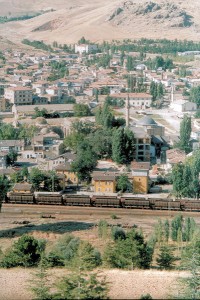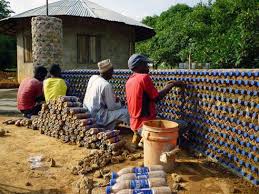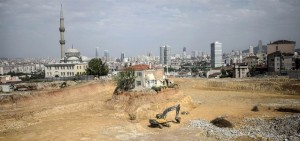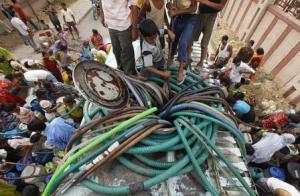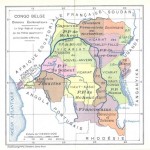Ansuya Harjani – World Faces $650 Billion Housing Problem
A staggering 330 million urban households around the world live in substandard housing or are so financially stretched by housing costs they forgo other basic needs like food and health care, according to McKinsey.
Urban dwellers globally fork out $650 billion more per year on housing than they can afford, or around 1 percent of world gross domestic product (GDP), McKinsey estimated in a new report, highlighting the enormity of the affordability gap.
More than two-thirds of the gap is concentrated in 100 large cities. In several low-income cities such as Lagos and Mumbai, the affordable housing gap can amount to as much as 10 percent of area GDP.
Read more: http://www.cnbc.com/id/102117275
Euronews ~ Sustainable Habitat In Colombia: Building Homes With Plastic Bottles
Building homes using recycled plastic bottles – that’s the innovative idea of a design school in Colombia specialised in sustainable habitat.
The inspiration came from the ancient “wattle and daub” housebuilding technique: the idea is to stack recycled bottles filled with sand and earth.
The design school offers courses to teach students how to empower communities by using alternative and accessible technologies.
“The idea is to create cyclical behaviour consistent with the environment we live in, to understand how we interact. Whether it’s consumer-waste, linear behaviour, or whether we can understand how we consume and discard and incorporate that into the cycles around us,” says Ana Maria Gutierez, the director and founder of the design school, Organizmo.
The idea is to recycle building techniques of the past in order to minimise environmental damage.
Read & see: http://www.euronews.com/building-homes-with-plastic-bottles/
Journeyman Pictures ~ Lagos Rising: Nigeria’s Capital Is The Fastest Growing Megacity In The World
Where next for “Africa’s London”?
Subscribe to Journeyman for more: https://www.youtube.com/user/journeymanpictures
For downloads and more information visit: http://www.journeyman.tv/?lid=67717
Lagos is the world’s fastest growing megacity, riding on a lucrative oil industry and expanding economy. But while skyscrapers furnish the business elite, millions in the city’s slums wonder if they will benefit.
“Lagos will become the financial hub for the continent of Africa”, says David Frame, the managing director of Eko Atlantic. He is in charge of building an 8km sea wall and dredging the Atlantic ocean, creating a new foundation for a business waterfront. The audacious plans may seem the stuff of fantasy, but a lot is staked on the success of the new development, to be finished in 2019. “The evolution of Eko Atlantic will change the face of Lagos, and open a new gateway to your success in Africa”, booms an advertisement. As forecasters anticipate the expansion with glee, the nearby fishing community of Makoko remains beset by Third World problems. The town’s Chief Francis begs for aid. “The government should reconsider us as human beings and help us for improvements of this community”, he says.
SBS Dateline – Ref 6252
Journeyman Pictures is your independent source for the world’s most powerful films, exploring the burning issues of today. We represent stories from the world’s top producers, with brand new content coming in all the time. On our channel you’ll find outstanding and controversial journalism covering any global subject you can imagine wanting to know about.
Jesse Honsa ~ Istanbul’s Fading Metabolism
As Istanbul undergoes a process of “Urban Transformation,” the plight of dispossessed residents and the bulldozing of historic UNESCO sites are apparently small trivialities. Human rights, historic preservation and even ecological sustainability are strange, unquantifiable concepts compared to the fruits of economic growth. So let us forget these elitist European ideals for a moment, and discuss the economic cost of urban transformation through the lens of an Asian urban concept: Metabolism.
While the Japanese Metabolists’ design work of the 1960’s failed to offer the rapid flexibility it promised, it still serves as an analogy for an adaptable urban form. Istanbul’s historic pattern of differentiated land ownership has been the DNA behind its adaptability, the crucial attribute needed for survival. A shish kebab of various programs, architectural styles and building heights skewered to the street, this dense and pixellated urban form can easily absorb shifts in the economy. But the current process of urban transformation consolidates these cells into monopolies. Like dinosaurs, they are large, slow beasts, unable to evolve under a changing environment.
Read more: http://www.failedarchitecture.com/istanbuls-fading-metabolism/
Steph – Urban Subversion ~ 13 Radical Examples Of Guerrilla Housing
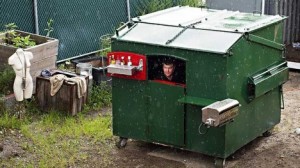 weburbanist.com. October 2014. Vacant lots, billboards, rooftops and even dumpsters are hacked into inhabitable spaces in these examples of often-illegal guerrilla housing. All manner of urban surfaces can be subverted into safe, dry shelters, often taking examples in gray areas of local laws or flying under the radar simply because they blend so well into the city environment.
weburbanist.com. October 2014. Vacant lots, billboards, rooftops and even dumpsters are hacked into inhabitable spaces in these examples of often-illegal guerrilla housing. All manner of urban surfaces can be subverted into safe, dry shelters, often taking examples in gray areas of local laws or flying under the radar simply because they blend so well into the city environment.
Read & see more: http://weburbanist.com/guerrilla-housing
OneWorld South Asia ~ Water ATMs: Improving Water Accessibility In Delhi Slums
September 2014. New Delhi: Water ATMs may improve accessibility, affordability and quality of drinking water in slum areas. Experts studied the functioning of Water ATMs and Treatment Plant in Savdha Ghevra resettlement colony of North-West Delhi as part of the yatra on Innovations in Urban Water Services organised by global think tank – Development Alternatives Oct 14, 2014, New Delhi.
In the absence of piped water supply, several far flung areas in Delhi continue to remain inaccessible to safe drinking water supply. The problem is more serious when it comes to unauthorised localities, slum areas and resettlement colonies in the city, where drinking water remains a scarce resource.
The current civic infrastructure doesn’t have the capacity to provide for the growing demand of water in the city and what the situation urgently needs is innovations in water supply and usage. These and related issues were discussed today by experts in a yatra organised by Development Alternatives (DA) in Savdha Ghevra resettlement colony in North-West Delhi.
The objective of the yatra was to study innovations in urban water services, and how these small interventions could result in substantial improvements to system efficiency across varying water collection, purification and distribution mechanisms.
The yatra was attended by representatives from Central Pollution Control Board, Central Ground Water Board, Delhi Jal Board, World Bank, INTACH as well as NGOs including Center for Science & Environment, Darvajal and Gramvikas. Savdha Ghevra is a 250 acres resettlement colony near Ghevra railway station on Delhi-Rohtak rail route in North West Delhi.
It is divided into several blocks, where approximately 30 000 people live. The inhabitants have fairly regular access to electricity but not to water. Furthermore, much of the promised infrastructure has not been developed, resulting in inadequate civic amenities.
Read more: http://southasia.oneworld.net/water
